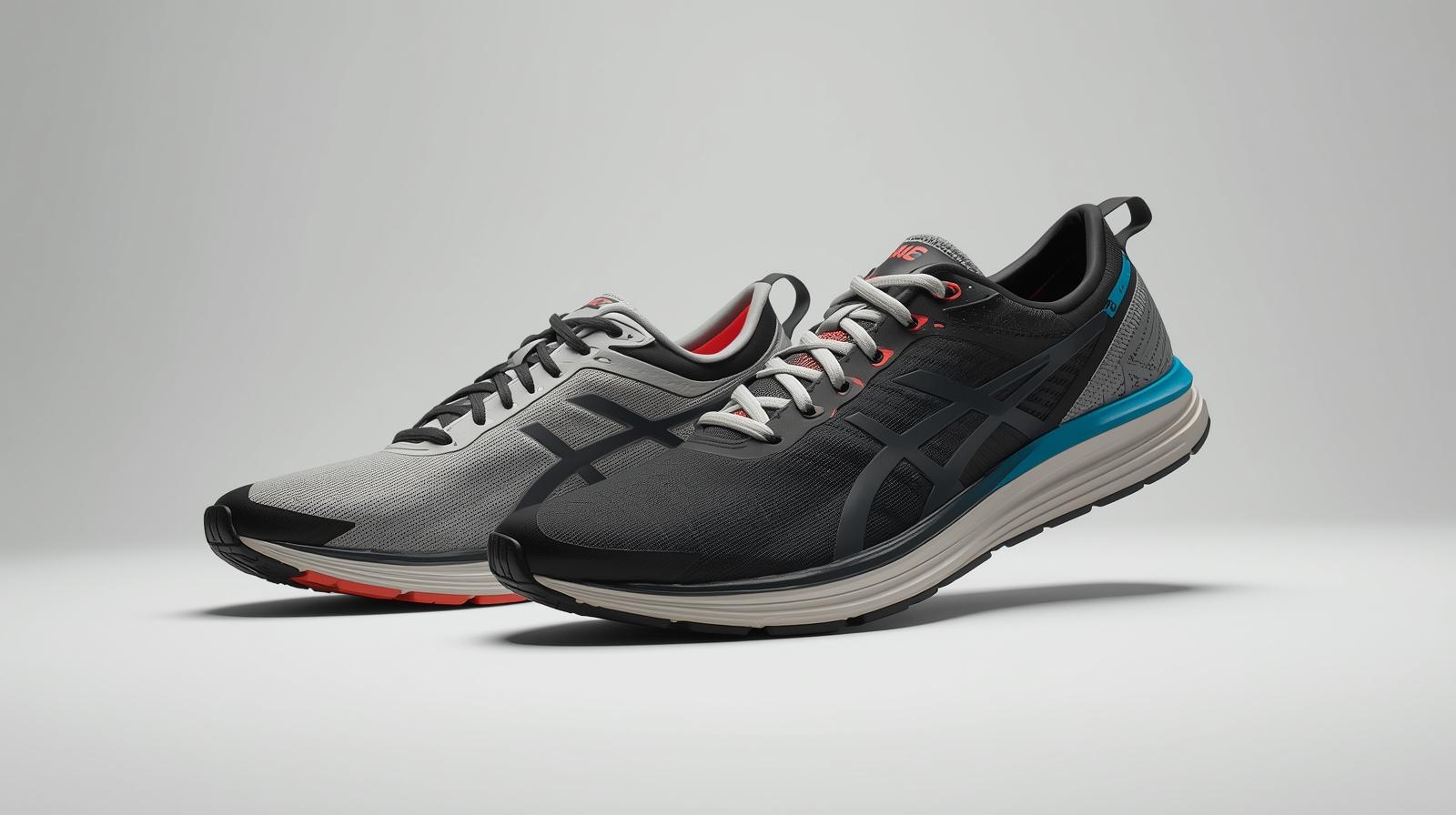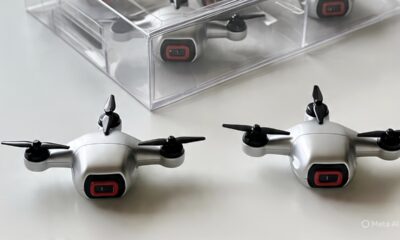Fashion
Best Running Trainers for Shin Splints: Find Comfort, Support, and Relief
Published
4 months agoon
By
Admin
Every runner, whether beginner or experienced, knows how painful shin splints can be.That sharp, aching pain along the front of your legs is more than just discomfort it’s your body’s way of saying something’s wrong. Shin splints often occur when the muscles and tendons around your shin bone (tibia) become overworked or strained.
The main culprits? Overtraining, poor running form, hard surfaces, or most importantly the wrong shoes. Wearing shoes that don’t provide enough cushioning or stability can cause excessive stress on your lower legs. That’s why choosing the best running trainers for shin splints isn’t just about performance; it’s about prevention and long-term health.
In this guide, we’ll break down what to look for in the right trainers, which models work best, and how to keep your runs pain-free.
Why the Right Trainers Matter
Running puts three to five times your body weight on each foot with every step. Without proper support, that impact travels straight to your shins. The right trainers absorb shock, distribute pressure evenly, and align your stride so your muscles don’t have to overcompensate.
A good pair of running shoes for shin splints should:
- Provide strong arch support to stabilize your foot.
- Offer ample cushioning to absorb shock.
- Have a snug heel fit to prevent sliding.
- Deliver smooth motion control to prevent overpronation (rolling your foot inward).
Once you find the right pair, you’ll notice the difference almost immediately smoother steps, less tension, and a more comfortable running rhythm.
Key Features to Look For
Not all trainers are created equal, especially when it comes to preventing shin splints. Here’s what you should prioritize when shopping:
1. Cushioning
The foundation of comfort. Look for midsoles made with foam or gel that reduce the impact on your shins and knees. Shoes with responsive cushioning like Nike React or Asics GEL technology help absorb shock during every stride.
2. Support and Stability
If you tend to overpronate (roll your feet inward), stability shoes are essential. They guide your motion and prevent uneven strain on your lower legs. Neutral runners can opt for softer, cushioned designs.
3. Heel-to-Toe Drop
A moderate drop (around 8–12 mm) helps shift pressure away from your shins. Minimalist shoes with low drops can worsen shin pain if your muscles aren’t conditioned for them.
4. Fit and Comfort
Always choose trainers that feel comfortable right away. There should be enough space in the toe box, a secure heel grip, and no tight spots. Poor fit equals unnecessary pressure and more pain.
5. Durability and Traction
High-quality outsole materials like carbon rubber ensure stability even on tough surfaces. A good grip keeps your stride balanced and reduces slipping risks.
Best Running Trainers for Shin Splints (2025 Edition)
Let’s look at some of the most trusted and effective trainers that runners swear by for shin splint prevention and recovery.
1. Asics Gel-Nimbus 26
The Asics Gel-Nimbus 26 is one of the most comfortable cushioned shoes available. It features the brand’s signature GEL and FF Blast+ technology, offering cloud-like comfort while reducing shock impact on every stride.
Why it’s great for shin splints:
- Excellent shock absorption for long-distance comfort.
- Plush heel cushioning minimizes stress on the tibia.
- Ideal for neutral runners or mild overpronators.
Best for: Daily training and recovery runs.
2. Brooks Ghost 15
Brooks Ghost models are beloved by runners for their soft, balanced ride. The Ghost 15 uses DNA Loft v2 cushioning a perfect blend of lightness, softness, and responsiveness.
Why it’s great for shin splints:
- Smooth heel-to-toe transition reduces impact pressure.
- High cushioning helps absorb shocks on hard surfaces.
- Breathable mesh upper keeps feet cool and comfortable.
Best for: Road running and treadmill workouts.
3. Hoka Clifton 9
Hoka has built its reputation on ultra-cushioned comfort, and the Clifton 9 doesn’t disappoint. Its thick EVA midsole and rockered sole design encourage forward motion, taking pressure off your shins.
Why it’s great for shin splints:
- Superior cushioning for joint and muscle protection.
- Meta-Rocker design promotes smoother transitions.
- Lightweight and supportive for long runs.
Best for: Long-distance runners and recovery days.
4. Nike Air Zoom Pegasus 41
The Pegasus line is known for reliability, and the Air Zoom Pegasus 41 brings even better energy return with its ReactX foam and dual Zoom Air units. It provides a springy yet stable feel, ideal for runners prone to shin splints.
Why it’s great for shin splints:
- Balanced cushioning and responsiveness.
- Supportive midsole reduces shin impact.
- Works well for all running levels.
Best for: Versatile training and everyday runs.
5. Saucony Triumph 22
The Triumph 22 focuses on plush cushioning without sacrificing performance. Its PWRRUN+ midsole provides a bouncy, soft underfoot feel, perfect for absorbing shock and reducing leg fatigue.
Why it’s great for shin splints:
- Maximum cushioning for tired shins and knees.
- Excellent arch support to correct posture.
- Durable outsole for stability on any terrain.
Best for: High-mileage runners and neutral gaits.
6. New Balance Fresh Foam X 1080v13
New Balance has mastered comfort with its Fresh Foam line. The 1080v13 delivers a soft, flexible ride with full-length cushioning that adapts to your stride.
Why it’s great for shin splints:
- Plush midsole cushions every impact.
- Wide base enhances balance and stability.
- Stretchy upper ensures a personalized fit.
Best for: Long, easy runs and recovery training.
7. Mizuno Wave Rider 28
Known for its “Wave Plate” technology, the Mizuno Wave Rider 28 provides a unique mix of cushioning and responsiveness. It disperses shock evenly through the foot to prevent stress buildup.
Why it’s great for shin splints:
- Wave Plate offers superior shock distribution.
- Durable outsole supports repetitive movement.
- Ideal for moderate overpronators.
Best for: Road running and everyday training.
8. On Cloudstratus 3
On Running’s Cloudstratus 3 uses a double-layer “CloudTec” cushioning system that adapts to each stride. The shoe offers both softness and stability, reducing leg fatigue significantly.
Why it’s great for shin splints:
- Dual cloud layers for maximum shock absorption.
- Wider forefoot improves stability and balance.
- Lightweight and responsive ride.
Best for: Distance runners who want both comfort and speed.
How to Prevent Shin Splints While Running
Even with the best trainers, prevention is key. Here are expert tips to reduce shin pain and avoid further injury:
1. Warm Up Properly
Never start running cold. Do a few minutes of light jogging, dynamic stretches, and calf raises before hitting full speed. This prepares your muscles for impact.
2. Gradually Increase Distance and Speed
Sudden increases in mileage or pace can overload your muscles. Follow the 10% rule don’t increase your weekly mileage by more than 10% at a time.
3. Run on Softer Surfaces
Whenever possible, run on grass, tracks, or rubberized paths. Hard concrete amplifies impact and worsens shin pain.
4. Use Proper Form
Avoid heavy heel striking. Try midfoot running it evenly distributes impact across the foot, reducing shin stress.
5. Stretch and Strengthen Regularly
Focus on exercises that strengthen your calves, ankles, and core. Strong muscles support better alignment and absorb more shock.
6. Replace Worn-Out Shoes
Old trainers lose their cushioning after about 300–500 miles. Running in worn shoes is one of the fastest ways to bring back shin pain.
When to Replace Your Trainers
You may not notice when your shoes are wearing out, but your body will. Here are signs it’s time for a new pair:
- The midsoles feel flat or hard.
- You see creases or cracks on the sides.
- Your legs or shins start aching again after runs.
- The outsole traction has worn smooth.
Investing in a fresh, supportive pair of trainers can instantly reduce discomfort and restore your natural running rhythm.
Recovery Tips for Shin Splints
If you’re currently dealing with shin pain, combine rest with smart recovery practices:
- Ice the area for 15–20 minutes after running.
- Massage your calves to release tightness.
- Wear compression sleeves to improve circulation.
- Use orthotic inserts if you have flat feet or overpronation.
- Take rest days to allow your muscles to heal.
Gradually return to running with low-impact activities like swimming or cycling before resuming full training.
Final Thoughts: Run Smarter, Not Harder
Shin splints don’t have to stop your progress. The right trainers can make a world of difference, transforming painful runs into smooth, confident strides. Whether you choose the plush cushioning of the Hoka Clifton 9 or the stability of the Asics Gel-Nimbus 26, remember: the best running shoes for shin splints are the ones that fit your body and running style perfectly.
Stay patient, focus on recovery, and build strength step by step. Over time, your legs will adapt, your form will improve, and your runs will feel lighter than ever.
With the right footwear, every stride becomes a step closer to comfort, endurance, and real running freedom.

Graduations, Pouch Pizza, Purchase Games, and ZipperGitsFh: A Modern Digital Culture Story

Unlock the Thrill: Why Independent Casinos Sites Are Better

The End of Forms: Why No-Registration Casinos Are Taking Over

The Best Online Casinos: Why Experience Matters More Than Luck

Understanding “inurl:home.htm intitle:1766” and Why People Search It

Home Gym Meteorology Shop: Evaluating Fitnara for Smart Fitness Choices

The Future of Gaming is in Your Hands: Why PayByMobile Casinos Change Everything

Discover the Elite: Why the Top 50 Online Casinos UK Set the Standard

Unleash the Thrill: Discover the Ultimate Experience at Basswin Casino

The Gold Standard: Defining the Best Online Casinos in the UK

The Gold Standard: Defining the Best Online Casinos in the UK

Discover the Elite: Why the Top 50 Online Casinos UK Set the Standard

Unleash the Thrill: Discover the Ultimate Experience at Basswin Casino

Home Gym Meteorology Shop: Evaluating Fitnara for Smart Fitness Choices

Fresh Spins & Big Wins: Unlocking the Best New Casino Bonuses in the UK

The Future of Gaming is in Your Hands: Why PayByMobile Casinos Change Everything

The Best Online Casinos: Why Experience Matters More Than Luck

Understanding “inurl:home.htm intitle:1766” and Why People Search It

The End of Forms: Why No-Registration Casinos Are Taking Over

Unlock the Thrill: Why Independent Casinos Sites Are Better

Graduations, Pouch Pizza, Purchase Games, and ZipperGitsFh: A Modern Digital Culture Story

Unlock the Thrill: Why Independent Casinos Sites Are Better

The End of Forms: Why No-Registration Casinos Are Taking Over

The Best Online Casinos: Why Experience Matters More Than Luck

Understanding “inurl:home.htm intitle:1766” and Why People Search It

Home Gym Meteorology Shop: Evaluating Fitnara for Smart Fitness Choices

The Future of Gaming is in Your Hands: Why PayByMobile Casinos Change Everything

Discover the Elite: Why the Top 50 Online Casinos UK Set the Standard

Unleash the Thrill: Discover the Ultimate Experience at Basswin Casino









